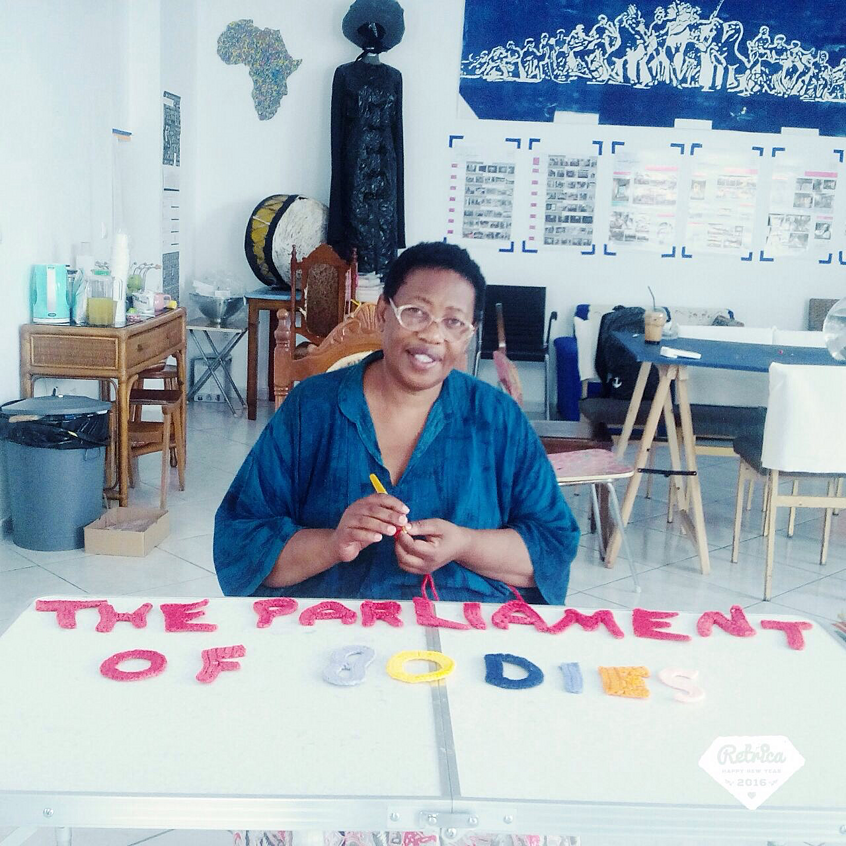
We often imagine our place in the world—or others imagine it for us—via loaded directionals like North and South, East and West. Or it might be said that one’s movement in these directions is paramount. What does it mean, then, in 2015 for documenta—a German institution firmly rooted in the global North, begun, as it was, as an exhibition dedicated to “Western European art” in 1955 in the city of Kassel, which once looked toward West Germany’s Eastern frontier– to publish a magazine called South? Further, what does it mean for documenta 14 to be hosted by an already-existing Athens magazine called South as a State of Mind? These are some of the questions we have asked ourselves as we spent the past several months editing the first documenta volume of South in Athens. In its new, temporary role as the magazine of documenta 14, South arrives late this October, a year and a half before the exhibition is scheduled to open, first on April 8, 2017, and then in Kassel two months later, on June 10.
In keeping with the concept of documenta 14 as a bi-located exhibition—one in which the exclusive role of host is left behind for a more radically receptive position—and in working with existing institutions and initiatives, we are hosted in the pages of South as a State of Mind by Marina Fokidis, who founded the magazine in Athens in 2012. For the four documenta 14 editions of the journal, which will be published semiannually until the opening of the exhibition in 2017, we are guests only. We imagine the South of documenta 14—both the journal and the imagined spaces it invokes—as a place of research, critique, art, and literature paralleling the years of work on the exhibition overall, one that will help define and frame its concerns and aims. Writing and publishing, in all their forms, will be an integral part of documenta 14, and we believe that this magazine will herald that process.
South d14’s first issue was produced during a period marked by a dramatic worsening of the economic and humanitarian crisis in Greece. The establishment and dissolution and reinstatement of the left-wing government, under conditions created by European-imposed austerity programs, was accompanied by the near-collapse of the Greek banking sector. The refugee crisis, meanwhile, has been escalating, with the displacement of millions of Syrians fleeing civil war, as well as those escaping the violence and repression in Iraq, Afghanistan, and sub-Saharan Africa. As has been noted widely, this is the largest global displacement of people since World War II, and for many of the refugees entering Europe, Greece is their first stop. In this state of emergency, the magazine, through the voices of its diverse authors—among them artists, poets, scholars, architects, and filmmakers—takes form as a manifestation of documenta 14 rather than as a discursive lens through which to merely presage the topics to be addressed in the eventual exhibition.
“In the current process of decolonization, memories of itineraries of the enslaved, migrants, and refugees are reactivated against new politics of forgetfulness,” notes Françoise Vergès in the pages of our first issue. “Memory here is not the realm of subjective fleeting thought but a source of images, texts, and songs that constitute a counterhegemonic library for present battles.” It is that counterhegemonic library for present battles—filled with essays, images, stories, speeches, diaries, and poems—that we have tried to assemble here, and that we see as our guiding vision not only for the next three volumes of South as a State of Mind, but for the documenta 14 publication program as a whole. If this first volume examines forms and figures of displacement and dispossession, and the modes of resistance—aesthetic, political, literary, biological—found within them, coming issues will continue our exploration of coloniality and neoclassicism, performativity and the poor copy, silence and masks, feminism and transfeminism, hunger and architecture, and the politics of misery and its representations, from misericordia to miserliness. Through its journal, documenta 14 has already set off on its journey, amid dramatic events and developments affecting entire nations and continents, destination as yet unknown.
In addition to South as a State of Mind’s print publication, redesigned for documenta 14 by Mevis & van Deursen, Amsterdam, there will be an online edition of the journal that makes content available in three languages: German, Greek, and English. The online edition will be launched October 31, to coincide with the publication of the first print edition of documenta 14 South. You will find it here: documenta14.de/south
To launch the first issue of the documenta 14 South as a State of Mind, five related events will be held in Athens, Kassel, Berlin, Dhaka, and Kolkata over the next several months, conceptualized by Adam Szymczyk, documenta 14’s Artistic Director; Quinn Latimer, Editor-in-Chief of Publications; and Paul B. Preciado, Curator of Public Programs. More detailed information about these events will be available on documenta 14’s website soon.
With contributions by Alexander Alberro, Katerina Anghelaki-Rooke, Aristide Antonas, Hannah Arendt, Pierre Bal-Blanc, Miriam Cahn, Manthia Diawara, Angela Dimitrakaki, Maria Eichhorn, Fouad Elkoury, Marina Fokidis, Peter Friedl, Hans Haacke, Bhanu Kapil, Quinn Latimer, Yorgos Makris, Jonas Mekas, Marta Minujín, Naeem Mohaiemen, Bonaventure Soh Bejeng Ndikung, Linda Nochlin, Paul B. Preciado, Thomas Sankara, Brandon Shimoda, Sven Stilinović, Adam Szymczyk, Françoise Vergès, Kaelen Wilson-Goldie, and Stefan Zweig
South as a State of Mind #6 [documenta 14 #1]
Edited by Quinn Latimer and Adam Szymczyk
230 x 300 mm, 262 pp., num. col. and b/w illustrations, English
Euro 10,-
Published October 31, 2015
ISSN 2241-3901
ISBN 978-3-86335-844-0
Designed by Mevis & van Deursen, Amsterdam
Printed in Greece
Design South Online: Laurenz Brunner, Julia Born, Julia Novitch
Realization: Systemantics



.jpg,846)